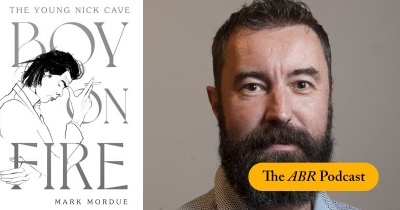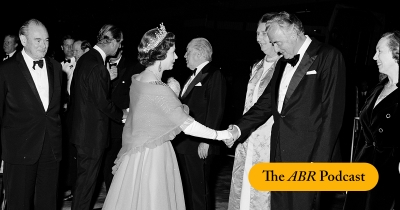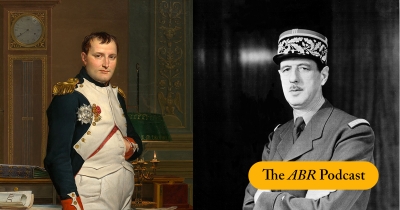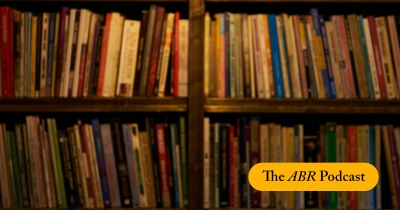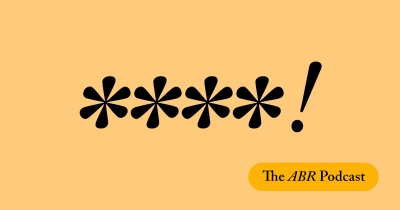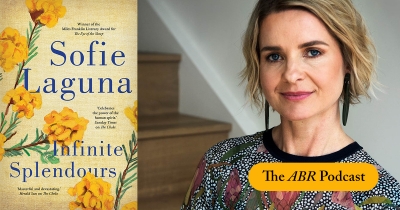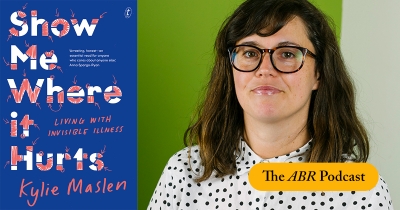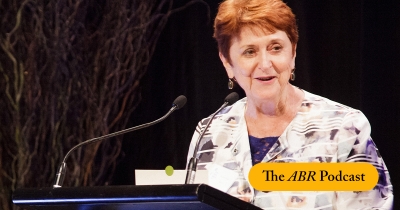Accessibility Tools
- Content scaling 100%
- Font size 100%
- Line height 100%
- Letter spacing 100%
Podcast
The ABR Podcast
Released every Thursday, the ABR podcast features our finest reviews, poetry, fiction, interviews, and commentary.
Subscribe via iTunes, Stitcher, Google, or Spotify, or search for ‘The ABR Podcast’ on your favourite podcast app.
Episode #186
Soul blindness: Clerical narcissism and unfathomable cruelty
By Scott Stephens
In this week’s ABR Podcast, Scott Stephens reviews a book by Anne Manne: Crimes of the Crimes of the Cross: The Anglican paedophile network of Newcastle, its protectors and the man who fought for justice. Why is narcissism a central theme for a book about child sexual abuse? Stephens writes: ‘without the capacity or willingness to be attentive to the humanity of another person’, unfathomable cruelty becomes possible. Scott Stephens is the ABC’s Religion & Ethics online editor and the co-host, with Waleed Aly, of The Minefield on ABC Radio National. Listen to Scott Stephens’s ‘Soul blindness: Clerical narcissism and unfathomable cruelty’, published in the May issue of ABR.
Recent episodes:
In today's episode of the ABR Podcast Tim Byrne discusses his review of Mark Mordue's new biography of Nick Cave with ABR Digital Editor Jack Callil.
Tim Byrne’s review of Boy on Fire appears in the January-February issue.
... (read more)The events of January 6 shocked the world. In this episode of the ABR Podcast Samuel Watts reads his article 'This Is America' and offers a historical perspective. As Watts notes, 'To view the assault on the US Capitol as the climax of a dramatic, but brief, period of authoritarianism in the US is a potentially dangerous mistake. This attack was just the latest iteration in a long-lasting tradition of anti-democratic, white supremacist violence that has plagued the Republic since, at least, the Civil War.'
Samuel Watts’s article ‘This Is America’ is one of a series of commentaries funded by the Copyright Agency’s Cultural Fund.
... (read more)The Peter Porter Poetry Prize, now in its seventeenth year and worth a total of $10,000, this year attracted more than 1300 entries from 33 different countries. It’s our pleasure now to present the five shortlisted poets, who introduce and read their shortlisted poems. Their poems appear online and in the January–February print edition of ABR. Single print issues can be bought here.
The overall winner (who will receive $6,000) won’t be known until the Porter Prize ceremony on January 27. Join us then at 5 pm Melbourne time for this online ceremony. This is a free event, but bookings are required via This email address is being protected from spambots. You need JavaScript enabled to view it. (an access link for the event will be sent to you via email closer to the date).
... (read more)Earlier this year, the National Archives of Australia – after an epic legal battle – finally released the Palace Letters, a substantial cache of correspondence shedding light on the involvement of Buckingham Palace in the lead-up to the dismissal of Gough Whitlam in 1975. In today's episode, Jon Piccini talks with Peter Rose about two new books that interrogate the significance of the letters: The Truth of the Palace Letters by Paul Kelly and Troy Bramston, and The Palace Letters by Jenny Hocking. Piccini reviews both titles in his review in our upcoming January–February issue.
... (read more)Napoleon Bonaparte and Charles de Gaulle are two of the most polarising figures in French history. In today’s episode, Peter Rose talks to leading historian Peter McPhee about Patrice Gueniffey’s new book on the lasting impact of these two leaders and the French people’s fascination with ‘great men’.
... (read more)
In today's episode, Peter Rose talks to writers Beejay Silcox and Billy Griffiths about what they’ve been reading during this tumultuous year. They also speculate about some highlights of 2021. For those looking for a more extensive listing of this year's finest works, our Books of the Year features more than 30 different ABR critics nominating their favourite releases.
... (read more)Amanda Laugesen, historian and lexicographer, is director of the Australian National Dictionary Centre at the ANU. In her latest book, the evocatively titled Rooted, Amanda considers the bountiful history of bad language in Australia. Her column in the December issue of ABR is devoted to the quaint old euphemism. Amanda talks about the inventive ways in which writers and editors have tried to placate the censor while also celebrating profanity.
... (read more)In today's episode, Amy Baillieu speaks to Nicole Abadee about Sofie Laguna's latest novel, Infinite Splendours. In her November issue review, Abadee reflects that Laguna 'does not shy away from confronting subject matter' and notes that Infinite Splendours represents 'new territory' for Laguna as it follows protagonist Lawrence from childhood into adulthood. Baillieu and Abadee also discuss Abadee's own podcast Books Books Books.
... (read more)Kylie Maslen's début essay collection, Show Me Where It Hurts, is an intimate exploration of living with chronic illness. Maslen describes her own experiences with the invisible illness she has lived with for the last twenty years, delving into its daily reality while incorporating music, literature, television, film, online culture, and more. Kate Crowcroft, who reviews the book in ABR's November issue, describes it as 'essential reading for those of us with the privilege of having a body that behaves itself'.
... (read more)In today's episode, Joshua Black reads his tribute to former Labor senator Susan Ryan, featured in our November issue. Ryan was a historic figure in Australian politics: she was the first woman from the ALP to serve in cabinet, and cemented her legacy with the Sex Discrimination Act (1984) – which prohibited sexual discrimination in the workplace. Here, Black recounts his interview with the pioneering politician only weeks before her death on 27 September 2020.
... (read more)

